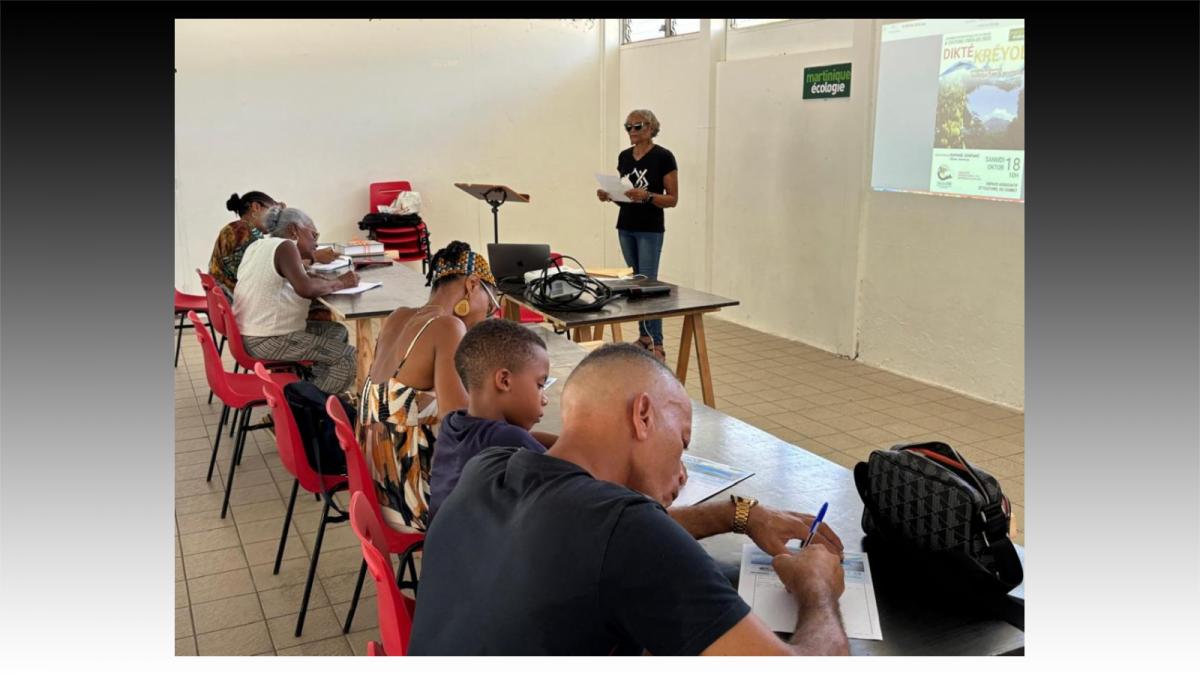New approaches to The Creole Debate: Our methodologies, even when empirical, constrain the outcome
Hiram L. Smith ("Cambridge Core Blog")

Creoles, perhaps more than other languages, have been categorized on the basis of their structural properties. The Creole Debate is, essentially, the question of whether or not creole languages are unique based on these formal properties. Some claim that they are. Others say that even the implication that creoles are exceptional has racist underpinnings. The debate is of the most polemic in linguistics. But why is there still such debate and not consensus on fundamental issues?
Well, one major impediment is that systematic empirical studies comparing creoles to other languages are in short supply. Notably, a recent empirical study compared the structural features (primarily presence vs. absence) of several creoles to non-creole languages (Bakker et al. 2011). The results? The creoles in this study clustered together but separately from other languages. The authors’ conclusion? That creoles are a distinct typological class. This paper received a firestorm of criticism for its selection of features and several aspects of its methodology as well as the social implications of the results. Recent exchanges between Bakker et al. and their critics highlight an important point: Empiricism is indeed a necessary, but apparently not a sufficient condition for moving this debate in meaningful directions; the methodology employed is also an important component affecting both scientific and social outcomes.
I used a different approach. Since languages vary a lot structurally, it is insufficient to use (only) structural criteria to compare them. Instead, I looked at form and function in order to test the applicability of cross-linguistic generalizations found in functional-typological literature. For example, in the world’s languages, past tense habituals typically have more overt coding in the past compared to present tense; there is more zero coding in the present; and habitual morphemes are also more frequent than progressives. These asymmetries are typological universals. Does Palenquero comply? To find out, we can’t just look at the presence or absences of features; we have to dig deep into the grammar.
In “Do creoles conform to typological patterns?” (Smith 2021), I examined Palenquero Creole, spoken in northern Colombia, which expresses habitual meaning using pre-verbal markers and rampant bare verbs, both considered “creole” features. After audio recording, transcribing, and coding data taken from conversations with real speakers, I conducted quantitative analyses on 2,544 present and past tense habitual tokens using statistical software. I detail various aspects of my methodology in the paper. The results show that Palenquero closely aligns with cross-linguistic predictions for habituals and gives convincing evidence of typological markedness.
Takeaway: If I had used only structural criteria, or had not used accountable quantitative methods, this creole would have surely clustered together with the creoles in Bakker et al.’s sample. I would have missed the big finding that “that, despite Palenquero having widely creole features (e.g., preverbal markers and bare verb stems) this has no bearing whatsoever on the expression, distribution, or relative ordering of forms in the variable contexts as viewed from a typological markedness perspective” (p. 3). Might this approach be used for other creoles?
- Se connecter ou s'inscrire pour publier un commentaire
- 31 vues
Connexion utilisateur
Dans la même rubrique
Olivier Ceccaldi ("Parallelesud")
28/11/2025 - 18:13
04/11/2025 - 21:53
Louis Boutrin ("Martinique-Ecologie")
27/10/2025 - 19:35
22/10/2025 - 19:08
Commentaires récents
Et si un écrivain français, réfugié en Russie, écrivait que l'Alsace appartient à l'Allemagne ?
"Sé Lalzas é la Lorenn" (bèlè post-1918)...
Frédéric C.
02/12/2025 - 15:41
A part ces deux villes, il y a aussi "Illkirch-Graffenstaden", ce qui ne signifie pas "La quiche Lire la suite
Elie Domota : "La gestion de l'eau en Guadeloupe est de la Mafia organisée !"
POI, votre 1er commentaire était...
Frédéric C.
02/12/2025 - 15:29
...intéressant, il invitait à la réflexion. Mais votre 2è : no comment !... Lire la suite
Elie Domota : "La gestion de l'eau en Guadeloupe est de la Mafia organisée !"
Qq réponses rapides à propos d'interpellations approximatives.
poi
02/12/2025 - 14:17
POI, JE VOIS CE QUE VOUS VOULEZ DIRE: 1) Je n'ai jamais écrit que les pays semblables à la Gpe ét Lire la suite
Elie Domota : "La gestion de l'eau en Guadeloupe est de la Mafia organisée !"
Sans Objet
Daniel
02/12/2025 - 06:32
Poukyi man enmen palé di lapè lendépandans ?
Lire la suiteElie Domota : "La gestion de l'eau en Guadeloupe est de la Mafia organisée !"
Danniyèl byenbonjou!...
Frédéric C.
30/11/2025 - 21:34
..."Sa" ki ka "di-w" ni dé (2) moun ki pè lendépandans, dapré mwen ou mal tann, òben "Sa" ka mant Lire la suite
Top 5 des articles
Aujourd'hui :
- Et si un écrivain français, réfugié en Russie, écrivait que l'Alsace appartient à l'Allemagne ?
- Elie Domota : "La gestion de l'eau en Guadeloupe est de la Mafia organisée !"
- Si la langue créole en est arrivée là aujourd'hui...
- Dr Weibert Arthus anbasadè defakto nan ottawa demaske
- Communiqué de presse de la défense d'Alfred Marie-Jeanne
Depuis toujours :
- Tous les présidents et premiers ministres de la Caraïbe sont vaccinés
- L'intolérable appauvrissement intellectuel et culturel de la Guadeloupe et dans une moindre mesure de la Martinique !
- LETTRE OUVERTE AU 31ème PREFET FRANCAIS DE MARTINIQUE
- L'arrière-grand-père maternel de Joan Bardella était...algérien
- Les triplement vaccinés contre le covid ne bandent plus





